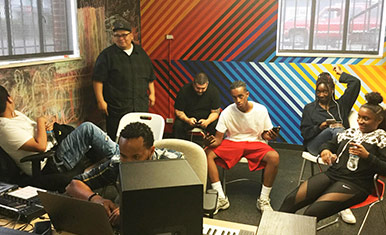Indigenous Systems of Medicine
Centering Indigenous Knowledges of Medicine, Illness, and Health
By B. Azucena Pacheco, PhD
IRISE Postdoctoral Fellow
My work is on Indigenous systems of medicine and utilizing a community based-participatory approach to center these knowledges in the development of health interventions that are culturally relevant for Indigenous communities. This work is important for expanding our understanding of health equity. In other words, thinking about health equity from Indigenous peoples’ perspectives and centering and supporting their voices through community health research and practice.
One of the most cited definitions of health equity is by the Robert Wood Johnson Foundation who define it as “everyone has a fair and just opportunity to be as healthy as possible. This requires removing obstacles to health such as poverty, discrimination, and their consequences, including powerlessness…” With this very broad definition we have to ask ourselves, who is determining what is a “fair opportunity to be healthy”, what does being “healthy” mean for different communities; what are the health priorities identified by actual community members? and how are different populations already addressing these health priorities?
Through my work I argue that Indigenous communities already have their/our own systems of knowledge on medicine and healing practices that are foundational in developing culturally relevant health programs for these populations. Specifically, my research has been with the Xinka Pueblo in southeast Guatemala. Indigenizing public health is not simply a call to incorporating pieces of Indigenous knowledges into Western research methodologies, but rather it is a call for recognition and centering Indigenous epistemologies on health, illness and medicine in health research and practice, to advance health equity for Indigenous peoples.
This fall, I begin a new chapter in my academic career as Assistant Professor in Latinx Community Health in the Department of Chicano/Latino Studies at California State University, Long Beach. I am very excited about this position as it will support my work with Indigenous peoples from Latin America residing in southern California, which will bridge my work in Latin America with current experiences of Indigenous migrants/refugees in the U.S.


